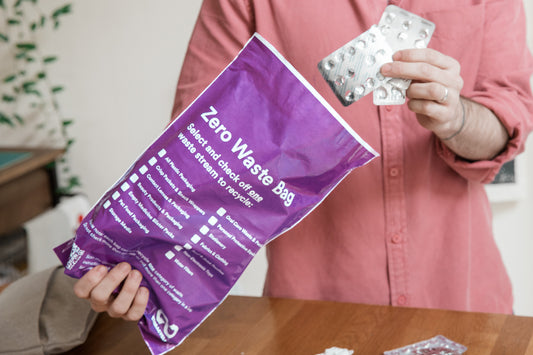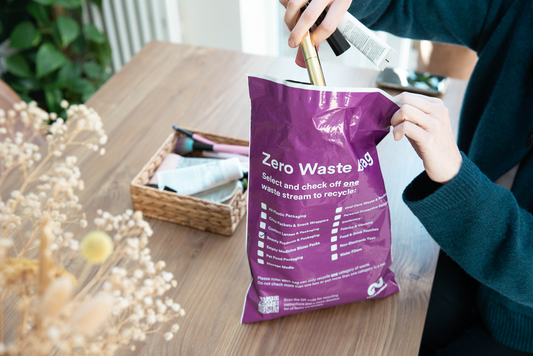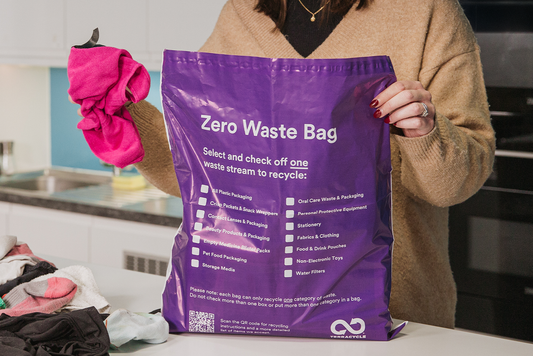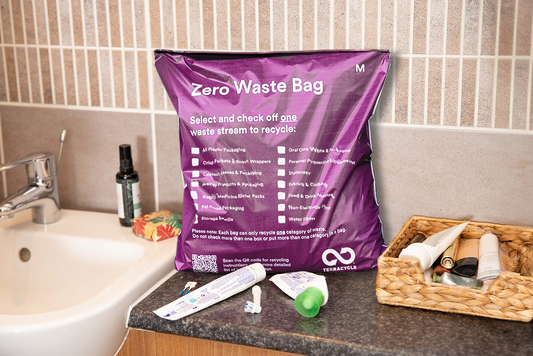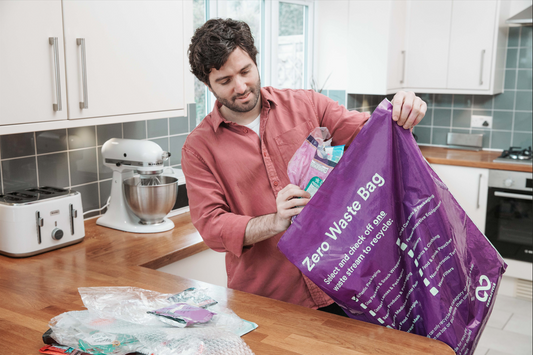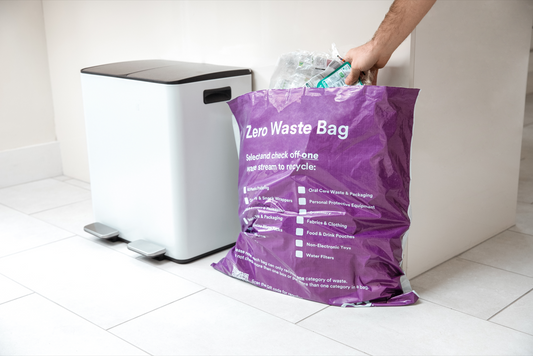
Collapsible content
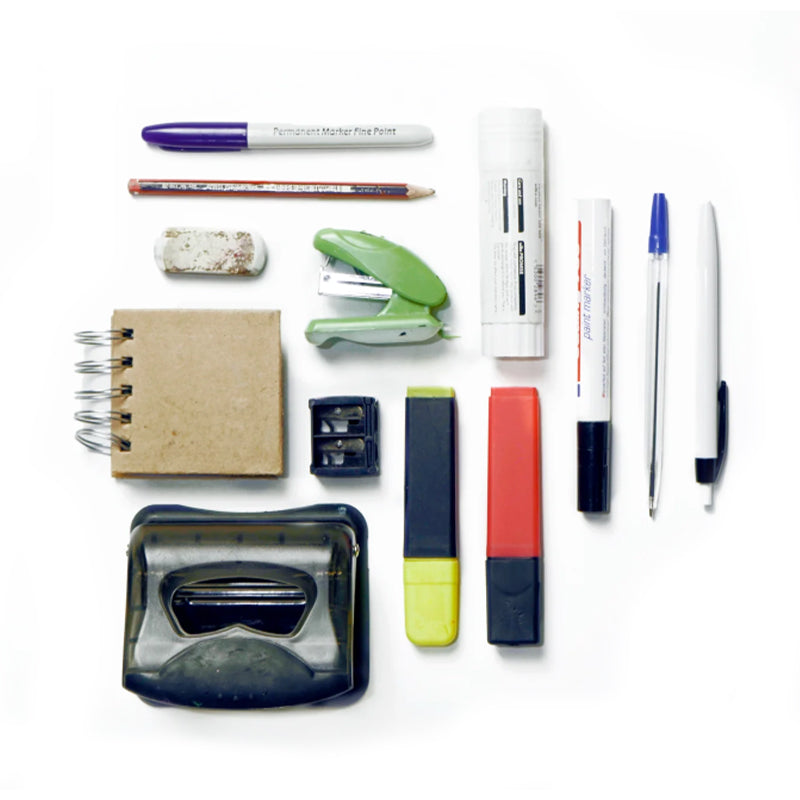
Accepted items
- Small plastic or metal discarded office supplies: Pens, mechanical pencils, pencil sharpeners, staplers, hole punchers, clips and clamps
- Other small supplies: Disposable and reusable tape dispensers, glue sticks, correction fluid bottles, and other correction supplies
- Filing and archiving supplies: Plastic file dividers, plastic folders, file pockets, business cards holders, binders
Some of the accepted waste may be recycled kerbside. For these types of waste, we encourage you to opt for local council collection as you'll have more room for products and/or packaging that can't be.
Non-Accepted items
- Electronic waste (e.g. electronic staplers, label making machines)
- Wood or bamboo products
- Laminated paper-release liner from labels
- Hazardous waste (sharp, flammable, reactive, corrosive, ignitable, toxic, infectious or pathogenic) which presents a danger to the environment, or to people
- Batteries, pressurized canisters, broken glass and medical waste
How to return my bag
Log in to your account to request an InPost shipping QR code and drop off your bag at your nearest InPost Locker - if you're dropping off multiple bags, remember it's one bag per locker.
How we recycle
Each Zero Waste Bag is opened upon receipt and visually inspected for any non-compliant materials, then consolidated for processing in bulk.
Consolidated materials are size-reduced through shredding and cleaned in temperature-regulated water baths with agitation and surfactants to remove residual product or other contaminants. Clean plastics are mixed with other plastics to make recycled plastic blends that are then used by various manufacturers to make new products.
Click bellow to find out more about our recycling process.
Start recycling smarter 💜
With Zero Waste Bag, you’re not only cleaning up your home, you're also making a real impact on the planet. Subscribe to our newsletter to enjoy 10% off your first order.
Shop the bags
-
Zero Waste Bag - Small
Regular price £27.00Regular priceUnit price / per -
Zero Waste Bag - Medium
Regular price £38.00Regular priceUnit price / per -
Zero Waste Bag - Large
Regular price £49.00Regular priceUnit price / per
